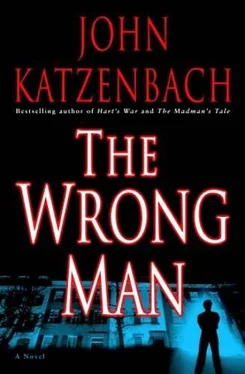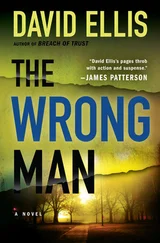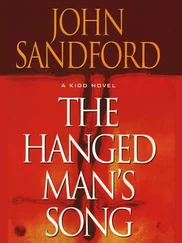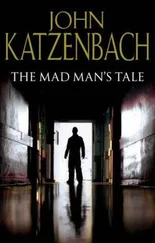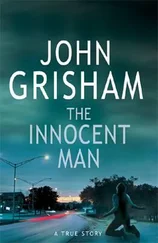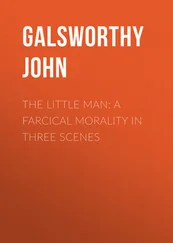Much of the area where Michael O’Connell grew up was dedicated to the construction of large ships. Huge cranes capable of moving tons of steel outlined the gray sky. Hot in the summer, cold in the winter, it was the sort of place where people wore hard hats throughout the day, coveralls, and sturdy, battered boots. The people who worked in the yards were sturdy and steady, as essential as the heavy equipment they operated. The place valued toughness over almost everything.
Scott felt completely out of place. As he sat in his car, watching the swarms of high school kids emerge from the shopworn school building, he felt as if he came from a different country. He lived in a world where his job was pushing students toward all the trappings of success that America likes to trumpet: big cars, big bank accounts, big houses. The teenagers he watched filing onto the waiting buses had lesser dreams, he guessed, and were far more likely to end up in a factory, working long hours and punching a time clock.
If I grew up here, I would do anything to get out, he thought.
As the loaded buses started to roll out, he emerged from his car and walked swiftly toward the school’s main entrance. A security guard hanging by the door pointed him to the main office. Several secretaries were behind a counter. He could see past them to where the principal was dully lecturing some female student with purple-spiked hair, a black leather jacket, and ear and eyebrow studs. “Can I help you?” a young woman asked.
“I hope so,” Scott replied. “My name is Johnson. I work for Raytheon; you know, we’re from the Boston area. We are about to offer a young man a position. His résumé says he graduated from this high school ten years ago. You see, we have some government contracts, so we have to double-check things.”
The secretary turned to her computer. “The name?”
“Michael O’Connell.”
She clicked some keys. “Graduated, class of 1995.”
“Is there anything else that might help us out?”
“I can’t give out grades and other records without written permission.”
“Yes, of course,” Scott said. “Well, thank you.”
He hesitated as the young woman turned back to filing papers electronically. Scott’s eyes caught a glance from an older woman, who had emerged from a vice principal’s office just as he’d spoken O’Connell’s name. She seemed hesitant. Then, with a little shrug, she walked over to where he was standing.
“I knew him,” she said. “He’s going to get a job?”
“Computer programming. Data filing. That sort of thing. It’s not crucial, but because some of the information is connected to Pentagon contracts, we have to do some routine background checks.”
She shook her head, surprised. “I’m glad to hear that he’s straightened his life out. Raytheon. That’s a big corporation.”
“His life back then. Was it that bent?”
The woman smiled. “You might say so.”
“You know, everybody has some trouble in high school. We try to look past the typical teenage things. But we need to be on the lookout for anything more serious.”
The woman nodded again. “Yes. Petty stuff.” She hesitated.
“O’Connell?”
“I’m reluctant. Especially if he’s turned things around. I wouldn’t want to mess up his chances.”
“It would be a help, really.”
The woman hesitated a second time, then said, “He was bad news, when he was here.”
“How so?”
“Smart. Far smarter than most. Significantly so. But troubled. I always thought he was a Columbine-type kid, except Columbine hadn’t happened yet. You know, quiet, but plotting something. The thing about him that always upset me was, if he got it into his head that you were a problem, or you were in his way, or if he wanted something, then that was the only thing he would focus on. If he got interested in a class, well, he’d get an A. If he didn’t like a teacher, well, then strange things would happen. Bad things. Like the teacher’s car getting trashed. Or his class records getting screwed up. Or a phony police report filed suggesting some sort of illegal behavior. He always seemed connected somehow. But never close enough so that anyone could prove anything. I was delighted when he left this school.”
Scott nodded. “Why-” he started, but the woman finished for him.
“If you came from that household, something would be wrong with you, too.”
“Where-”
“I shouldn’t.” She took out a piece of paper and wrote down an address. “I don’t know if this is still accurate. It might not be.”
Scott took it. “How is it you remember this? It’s been ten years.”
She smiled. “I’ve been waiting all that time for someone to come walking through the door and start asking questions about Michael O’Connell. I just never thought it would be someone considering giving him a job. Figured it would be the police.”
“You seem very certain.”
The woman smiled. “I was once his teacher. Eleventh-grade English. And he made a distinct impression. Over the years, there have been a dozen or so whom one never forgets. Half of those for the right reasons, half for the wrong. Will he be working in an office with young women?”
“Yes. Why?”
“He always seemed to make the girls here uncomfortable. And yet, they were drawn to him, as well. I could never quite figure it out. Why would you be attracted to someone you knew would cause you trouble?”
“I don’t know. Maybe I should talk with some of them?”
“Sure. But after all this time, who knows where they might be? Anyway, I doubt you can find too many people willing to talk about Michael. As I said, he made an impression.”
“His family?”
“That’s his home address. Like I said, I don’t know if his father still lives there. You can check.”
“Mother?”
“She was out of the picture years ago. I never got the full story, but…”
“But what?”
The woman stiffened abruptly. “I understand she died when he was little. Ten maybe? Maybe thirteen? I don’t think I should say anything else. I’ve already said too much. You don’t need my name, do you?”
Scott shook his head. He had heard what he needed to hear.
“Earl Grey, dear? With a little bit of milk?”
“That would be fine,” Hope replied. “Thank you very much, Mrs. Abramowicz.”
“Please, dear, call me Hilda.”
“Well, Hilda, thank you very much. This is most kind of you.”
“Be with you in a second,” the old woman continued. Hope could hear the kettle start to sing. She cast her eyes about, taking in as much of the apartment as she could. A crucifix was on the wall, beside a vibrantly colored painting of Jesus at the Last Supper. This was surrounded by faded black-and-white photographs of men in stiff collars and women in lace. They were juxtaposed with pictures of a dark but green landscape, streets filled with cobblestones, and a church with pointed spires. Hope added it all together: long-dead relatives in an Eastern European country not visited in decades. It was a little like papering the walls of the apartment with ghosts. She kept searching for the old woman’s story; paint peeling near the windowsill; a row of vials and containers of medications. There were stacks of magazines and newspapers, and a television set that had to be at least fifteen years old adjacent to an overstuffed red armchair. It all spoke of emptiness.
There was only a single bedroom. She looked around and spotted a basket with knitting needles near the armchair. The apartment smelled of age and cats. Eight or more were perched on the couch, on the windowsill, and by the radiator. More than one came over and rubbed up against Hope. She guessed there were double the number hiding in the bedroom.
Читать дальше
